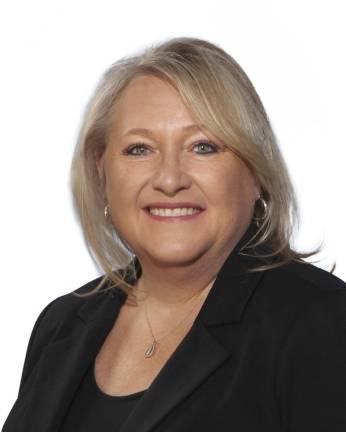Dale wants state to help clean lake
WEST MILFORD. New Jersey doesn’t provide funding to clear up harmful algal blooms.

With the state Department of Environmental Protection recommending that some Greenwood Lake beaches again be closed because of harmful algal blooms (HAB), West Milford Mayor Michele Dale says New Jersey should be doing more to fix the problem.
”This happens every summer, and since this is a state lake, the state needs to provide funding to clear up these algal blooms,” she said.
“Direct funding is not provided for the lake. There was funding a couple of years ago to dredge Belcher’s Creek but there needs to be maintenance.
“They say septics may be causing algal blooms, but we’ve enforced our septic ordinances. We couldn’t get them to take care of Brown’s Point. (The state) says the water is so valuable that we can’t have smart building to create ratables for the township, but then they don’t seem to care about maintaining the lake that supplies drinking water to 2.4 million people.”
In 2024, Senate Bill 876 stalled in the Budget and Appropriations Committee. If passed and signed into law, it would have provided $17 million for grants to assist qualified entities to pay some costs associated with the management and maintenance of lakes for recreation and conservation purposes.
A portion of the bill, which was sponsored by Sen. Anthony Bucco, R-25, references the Greenwood Lake Commission, a bi-state agency that works to improve the water quality of the lake:
“The bill requires the Department of Environmental Protection to develop criteria for the evaluation and ranking of applications to provide priority to projects submitted by qualified entities responsible for a lake with public access; and projects to improve water quality and increase recreational access and use of lakes, including projects to control nutrient levels in lakes in order to prevent future harmful algal blooms. The bill provides that a grant issued pursuant to the bill may be used for stormwater and nonpoint source pollution management activities if the DEP determines that those activities would directly enhance, improve or protect the use of a lake for recreation and conservation purposes.”
Christopher Sivel of the Senate Republican Office said the 2024 bill would have to be amended in committee to reflect the current budget year. That would be done if the Budget and Appropriations Committee were to hold a hearing or vote on it.
State Assemblywoman Aura Dunn, R-25, called Greenwood Lake “an important state-owned natural asset” and said New Jersey should dedicate funding to help maintain and preserve it.
“A bill I co-sponsor would appropriate $500,000 in existing revenue from boat registrations and renewal fees to pay for lake maintenance and restoration, including mitigating the harmful algal blooms,” she said.
“Gov. (Phil) Murphy vetoed this legislation that unanimously passed both houses of the Legislature in 2020, but it is something I am still championing as it creates no new fees or taxes but commits to annually funding the conservation and preservation of the state’s second-largest lake.”
Dunn has continued to co-sponsor legislation similar to what was vetoed every session.
Another area of frustration, as expressed by Dale, has to do with the nature of a bi-state lake. For example, the New Jersey DEP has advised that beaches be closed because of HABs while the New York Department of Environmental Conservation has not made that determination of the New York side of Greenwood Lake.
“The advisory levels several feet down the road are different from the DEC to the DEP,” Dale said. “The DEC has different recommendations, and they are not at a closure level. Because it is a bi-state lake, a portion is governed in New York and a portion is governed in New Jersey and the two entities aren’t in agreement as to what they consider the toxicity levels to be as the water is constantly flowing back and forth.”